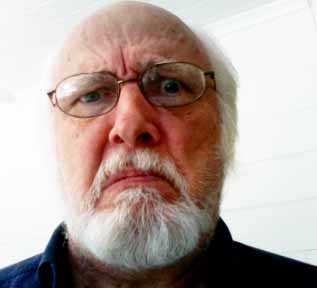The lesson of this Forum thread is that Sen's approach to Justice and Well-being through capabilities and capacities positions his policy initiative at the center of apparatus shift. It is not only a matter of recognizing the metaphysical nature of potentiality, but of participating in the invention (heuretics) of a new metaphysics for electracy that deconstructs the literate commitment to actuality over potentiality.
In his book on Benjamin's conceptual innovation --reframing concepts not as essences but as procedural possibilities, articulated as -ability (-barkeit) -- Sam Weber cites a key passage from Derrida's Echographies that shows Derrida's affinity with Benjamin's program of a coming philosophy.
If I had time, I would insist on another trait of "actuality," of what is happening today and of what is happening today to actuality. I would insist not only on the artificial synthesis (synthetic images, synthetic voices, all the prosthetic supplements that can take the place of real actuality) but first of all on a concept of virtuality (virtual image, virtual space and thus virtual event) that can no longer simply be opposed, in total philosophical serenity, to actual reality, as one formerly distinguished between potentiality and act, between dynamis and energeia, between the potentiality of matter and the defining form of a telos, and hence also of a progress, etc. This virtuality impresses itself even upon the structure of the produced event, it affects the time as well as the space of the image, of discourse, of "information." In short, everything that relates us to the said actuality, to the implacable reality of its supposed presence. A philosopher who "thinks his time" should today, among other things, be attentive to the implications and the consequences of such virtual time. To the novelties of its technical implementation but also to what in radical innovation recalls of possibilities that are far more ancient. (Derrida, "Artefactualités," in Derrida and Bernard Stiegler, Echographies, de la television, Paris: Galilée-INA, 1996) (in Weber, 51).
Giorgio Agamben explicitly embraces the program of the coming philosophy, in terms the echo Derrida and resonate with the project of apparatus invention.
Contingency is contained in a barrier that always necessarily inscribes its expression in the form of a past: something could have been otherwise than it is. This temporal articulation in fact conditions Western science's entire representation of possibility (and this is as true of linguistics as of all other disciplines). That said, is it possible to grasp contingency otherwise than as "something that could have been"? Is it possible, in other words, to call into question the principle of conditioned necessity, to attest to the very existence of potentiality, the actuality of contingency? Is it possible, in short, to attempt to say what seems impossible to say, that is: that something is otherwise than it is? This appears to be precisely the task of coming philosophy: to redefine the entire domain of categories and modality so as to consider no longer the presupposition of Being and potentiality, but their exposition. (Agamben, Potentialities, 75-6).

